I see beautiful photos of beaches or rivers/streams where the water looks like frosted glass...
How is this effect achieved?
Is it a longer exposure?
Answer
As others have said, it depends a lot on what kind of effect you want on the water and how much light is available.
What I usually do is decide on how milky I want the water and then find out the time needed to get there. Note that the speed and volume of water impacts the result, so the thinner the stream/flux is the more time you need.
Here is a shot that required six seconds in order to achieve the effect I wanted. Fortunately the scene was under the trees on a heavily cast day and I wanted to use a smaller aperture (8.0 in a Canon compact) resulting in a bigger depth of field, otherwise there would be too much light for the shot:
If you are shooting at night, you may use even longer times, 15 seconds for example, before overexposing the picture:
Note that on such long exposures, if you want someone to be part of the scene, be sure they stand really still. Here again, 15 seconds were used to make sure the water was milky enough:
If, on the other hand, your scene is in plain daylight (by noon, even worse), you will certainly need a powerful ND filter, in order to allow the same 15 seconds. Here two of them were used, an external one with 9 steps and the camera built in, with 3 more steps:
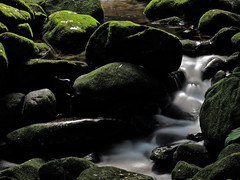
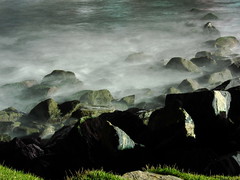
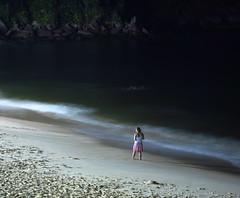
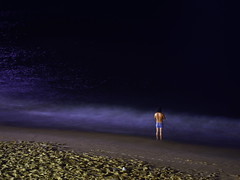
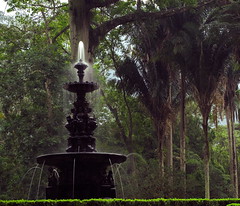
No comments:
Post a Comment